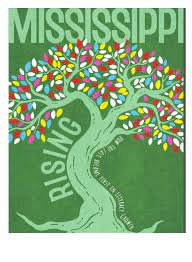In 1996, reading scores for students in the state of Mississippi landed dramatically lower than in other states. According to the National Assessment of Educational Progress (NAEP), 4th grade reading scores in Mississippi averaged around 183–that’s sixteen points below the national average. However, flash forward to 2019 and Mississippi’s reading scores have miraculously climbed, meeting the national average.
 Leta Palmiter, executive director and founder of ‘Illuminations Center for Dyslexia’ says the success was no miracle. “I’m here to tell you how change happens and how you can make change happen. Our story is about individuals who want to make a difference”. In her recent book, “Mississippi Rising: How the Last Became First in Literacy Growth,” Palmiter explains the steps that lead to Mississippi’s incredible comeback. Lucky for us, she also shared her findings with the Learning Ally community at our 2022 Spotlight on Dyslexia virtual conference. “It is my privilege to share our story,” says Palmiter. “It’s not just my story… It’s the story of all the educators in the state of Mississippi who have set the pace for the rest of the nation.”
Leta Palmiter, executive director and founder of ‘Illuminations Center for Dyslexia’ says the success was no miracle. “I’m here to tell you how change happens and how you can make change happen. Our story is about individuals who want to make a difference”. In her recent book, “Mississippi Rising: How the Last Became First in Literacy Growth,” Palmiter explains the steps that lead to Mississippi’s incredible comeback. Lucky for us, she also shared her findings with the Learning Ally community at our 2022 Spotlight on Dyslexia virtual conference. “It is my privilege to share our story,” says Palmiter. “It’s not just my story… It’s the story of all the educators in the state of Mississippi who have set the pace for the rest of the nation.”
It all began with one mom, Marilyn Carlisle, who was committed to finding better interventions for her son. She reached out to the local chapter of Scottish Rite Masons, an organization that has prioritized treatment for dyslexic students since 1965. With the help of the Masons, Carlisle was able to access dyslexia centered reading instruction on VHS tapes.
Shortly after, Mississippi College approved the United State’s first ever Master’s Degree in Dyslexia Therapy. These small first steps made a large impact on future literacy because it exposed Mississippi educators to research-backed pedagogy for struggling readers. “There’s a science of reading and an art to teaching,” explains Palmiter, “and we need both.”
The next step was to get everyone on the same page. Despite the extensive evidence backing the science of reading, many school boards opted to remain with outdated curriculums. “Rooting out failed methods of reading instruction from U.S. primary classrooms won’t be easy. Those roots run deep…” said Dr. Louisa Moats. That’s when Mississippi-born entrepreneur James L. Barksdale got involved. At the time, Barksdale was in-charge of FedEx’s package tracking systems. He famously said, “If FedEx can get a package from the middle of Manhattan to the middle of Tokyo… then we ought to be able to teach every child in Mississippi to read.''
Barksdale backed his claims with a donation of $100 million dollars to the cause, insisting that his generosity was not so much a gift, as it was an investment in the lives of Mississippi’s students. Barksdale’s funding was invested in teacher and principal preparation. By doing so, he helped to arm Mississippi educators with dyslexia-focused strategies that could be applied to all students.
Barksdale’s investment paralleled the strategy of another major and final step on Mississippi’s road to literacy. The Literacy Based Promotion Act (LBPA) was passed in 2013, and like Barksdale’s contribution, it focused on equipping educators of all levels with the most up-to-date, dyslexia-friendly, reading instruction. The LBPA provided LETRS training to all K-2 teachers in Mississippi and established as many as 75 salaried positions for literacy coaches in Mississippi schools.
Palmiter stresses that, unlike in other states, Mississippi’s approach to literacy doesn’t involve a mandated curriculum. “When you really own what’s going on in the brain…when you own that knowledge, it changes the way you teach reading… you don’t have to change the curriculum.” She adds that while curriculums are prone to change every few years, the LBPA ensures that school administrators are informed when making such a decision. “The leaders had to know what was a better choice for them…They needed to see things that were going to be useful to them.”
Amongst all these seemingly separate efforts to improve literacy in Mississippi, Palmiter sees a unified throughline: “When we all started swimming in the same direction, major change happened.” That direction was the science of reading. By focusing state resources on “knowing better,” Mississippi educators were able to “do better” almost effortlessly. “If we taught every student the way we teach dyslexic students… nobody would be left behind. That’s the secret of our state… Change is possible and it starts with the science of reading.”
Article by: Michael Manzi. Michael was a struggling reader. Now, he writes articles and blogs to promote research-backed literacy interventions for students across the education spectrum.